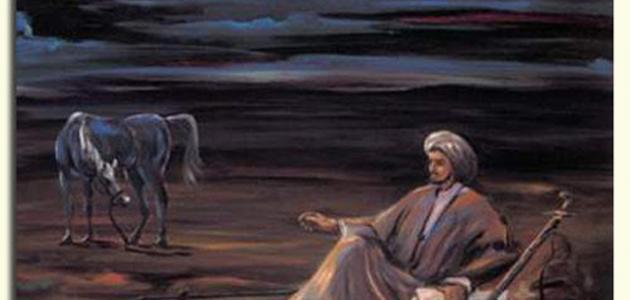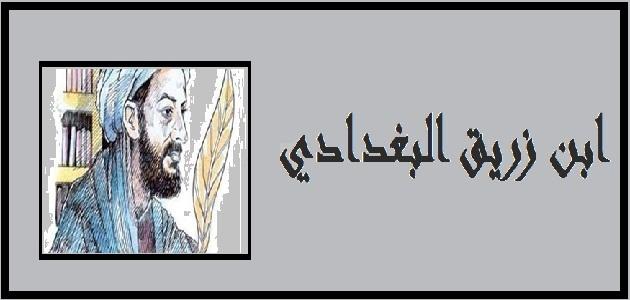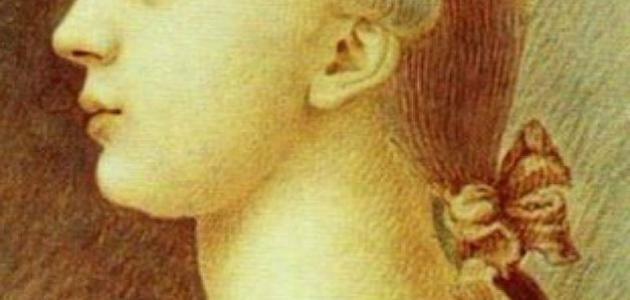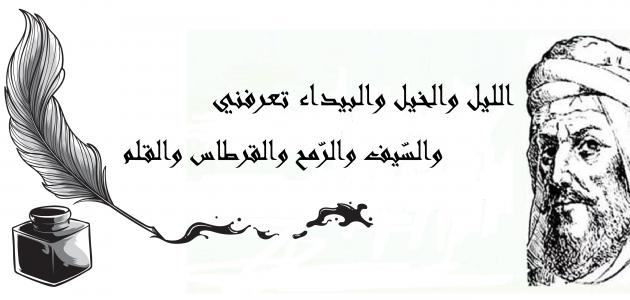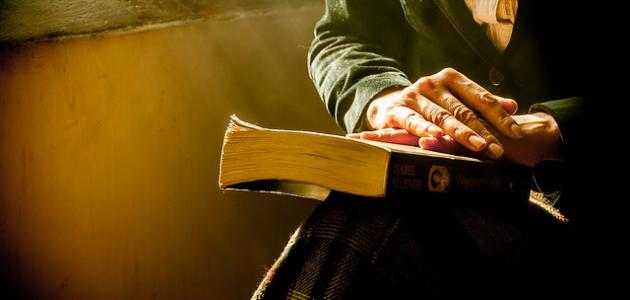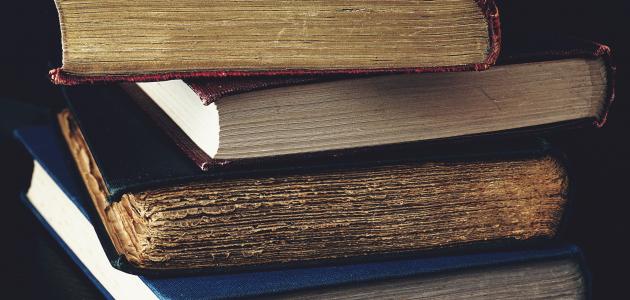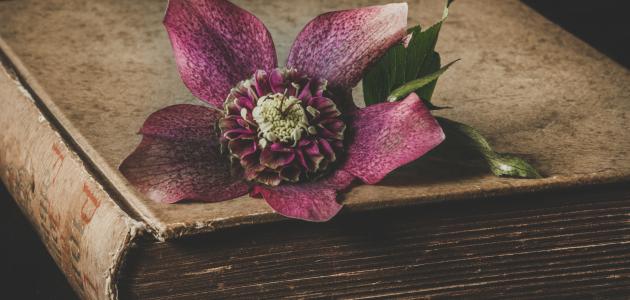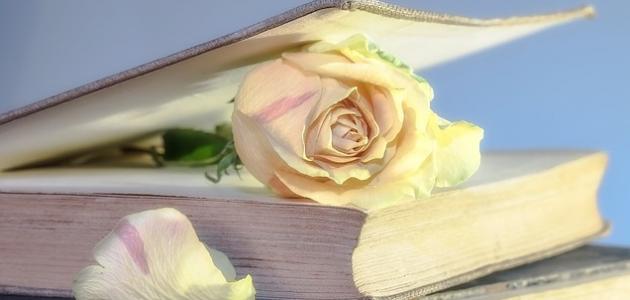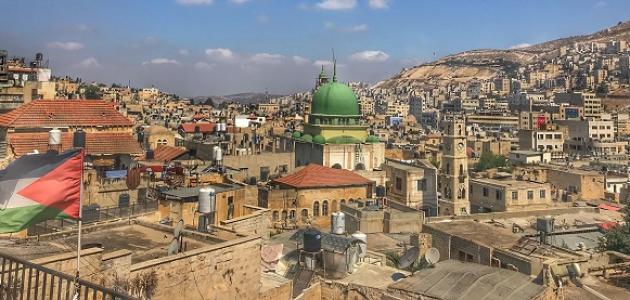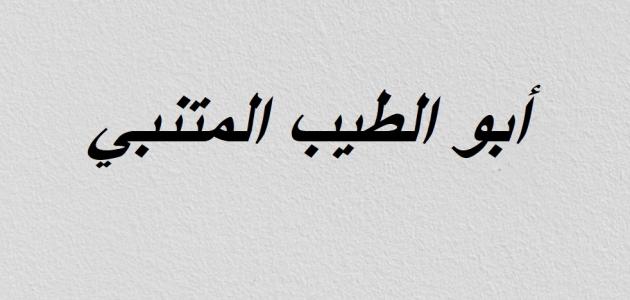Poetry in the pre-Islamic era
Pre-Islamic poetry was considered one of the highest literatures in that era, and it is still the highest in the eyes of many critics to this day. In perpetuating their history and glorifying their exploits, it is worth noting that the beginning of Arabic poetry was older than what has come down to us from poetry, and this is an indication of the extinction of a large part of it. That it was free of restrictions, and free from the methods of expression and imagery, then it developed with the person who lived his new experiences, then the poetic meters varied in the poems, which were initially represented in rhymes, and so on until the weights were achieved and diversified in the poetic pieces until they became poems.
The most famous poets of the pre-Islamic era
The beauty of the Arab environment has a clear impact on the formation of the pre-Islamic Arab personality. The poet's affiliation with his land and people as the first and last resort made him intolerant towards his tribe and his people when wars broke out among them. It was necessary to enter into a race of competition between individuals and tribes in the fields of eloquence and statement, which led There is a large number of poets, but there has been a poetic renaissance that historians could not count all the poets at that stage, so each poet was different from other poets in his production, spread and fame, and each tribe was claiming to be the most numerous tribe in the poets and the most talented of them.
Read also:George Bernard ShawBecause of what was reported, the critics tried to divide the poets into classes, some of them took the name and fame as a basis in dividing it, and some of them took the meanings and methods as a method in the division, and some of them took the poetic purposes or the social aspect as the basis for the division, and some of them divided the poets on the basis of the religion they embraced. , and other factors taken into account by critics. In this article, we briefly mention the most famous and important pre-Islamic poets, who are the Seven Mu'allaqat poets, to whom I add Al-Nabigha Al-Dhubyani, Al-A'sha, and Obaid bin Al-Abras.
Imru Al Qais
He is Imru’ al-Qais bin Hajar bin Harith, a poet from Yemen, from the Kinda tribe. He grew up in a house of prestige and money, so his father was the master of Bani Asad, so his son grew up in luxury, where he was famous for his love of fun, drunkenness, and reciting obscene poetry, and after the assassination of his father at the hands of the Banu Asad said his famous saying: (My father lost me when I was young, and his blood carried me when I was old), a clear indication that he will take revenge for his father, and this is what he did when he asked for aid from Caesar of Rome to restore his kingdom to him in Bani Asad. In it, some of them said that some of the Arabs who were with Imru’ al-Qais had mentioned to the Caesar that he was communicating with his daughter, and some of them said that the companions of the Caesar had advised him that the Arabs might betray him after they had won what they wanted, so he was named after that with the sores, and he died in Ankara while he was returning from Constantinople.
Read also:Description at Al-BahturiWhile his poetry was varied between flirtation and description, especially in the description of women, horses, and hunting, permeated with wisdom, in addition to his brief eloquence, which expresses his life and his people, so his poetry represented the luxury he lived in his youth. Whoever started in his poetry mentioned the ruins and sang the beloved, and they also said about him that he is one of the best who used metaphors in his poetry, as no one reached what his poetry reached in spinning, satire and description. As for his commentary, he said at the beginning:
- Stop weeping from the memory of Habib and Manzil
- By the twisting fell between entering, so he was pregnant
Tarfa bin Al-Abd
He is Tarfa bin Al-Abd bin Sufyan bin Saad bin Malik bin Dhabaa bin Qais bin Thalabah from Bakr. As for his father, he was characterized by courage and daring. He lived as an orphan of the father, until he died in the prime of his youth when he was in his twenties, murdered after he satirized King Amr bin Hind in the year 215 AH.
While his poetry was characterized by its sweet words as well as its strange and complex words, and the reason for this is due to the nature of his life in which he began composing poetry since his childhood, where he described nature and its beauty with coarse poetry. Al-Badawi's civilized taste, in addition to his strong and eloquent style in depicting the meanings he wanted, and his poetic purposes varied between satire, pride, description, and wisdom. We quote the beginning of his comment, which says:
Read also:Definition of the poet Jalal al-Din al-Naqqash- Khawla ruins in Cyrenaica Thamad,
- It looms like the rest of the tattoos on the back of the hand
Zuhair bin Abi Salmi
He is Zuhair bin Rabia, from the Mazina tribe of Mudar, and he was called Abu Salma. He was born into a poet's family. His father, uncle, stepfather, sister, and children were poets. The environment in which he grew up was the basis for the formation of Zuhair's poetic personality. Opinion, Omar Ibn Al-Khattab described him as the most poetic of the Arabs, so he used to take from the words what is good and leave his footnotes, as he is the master of his people who was characterized by the wisdom that helped him to participate in the war epics. Like Harb Daas and Al-Ghabra, which moved his feelings sincerely, and his praise in his poems helped him to correct his poetry and revise it for a long time, so he was one of the most important poets of the annals. And the beginning of his famous commentary says:
- Safer or fuller Dimnah did not speak
- Bahumana the pheasant in the blunt
Al-Harith bin Helza
He is the most righteous Ubaidah al-Harith bin Halza bin Makruh, and he is a master of the Bakr tribe in Iraq. Al-Harith was a glorious poet well versed in poetry, and it was said that he organized his commentary because Amr bin Hind had gathered the tribe of Bani Taghlib and Bani Bakr after the Al-Basus war to reform between them, and he took a mortgage From each tribe a hundred boys to stop each other from each other, so these mortgages were invading with the king until the boys of Bani Taghlib perished and the Bakrians surrendered. Bin Halza says his poem from behind a veil because he has leprosy, and Amr bin Hind did not like to see anyone with bad, and after that Al-Harith lured King Amr bin Hind to rule for his people, and with it Amr ruled for Bakr to overcome, and it was the beginning of his poem:
- Names told us
- The Lord of Thao is bored with him
Amr bin Kulthum
He is Abu al-Assad Amr bin Kulthum al-Taghlibi. His family is considered to be the masters of Taghlib, so his father is Kulthum and his mother is Laila bint al-Muhalhal. A talented poet, but he was considered one of the Muqalleen, and he lived a long time until he died in the year 600 AD, while his poetry is distinguished by the smooth style and improvisation, in addition to the extreme exaggeration of pride that was not written like it in pre-Islamic poetry. And he organized it because of the dispute between him and Amr bin Hind, and its beginning:
- Don't give me your plate, so we became
- and don't keep the andrina liquor
Antara bin Shaddad
He is Antara bin Shaddad bin Amr bin Muawiyah bin Qarad al-Absi, and he is from Najd, and he was called Antara al-Filha, but his mother was an Abyssinian, so his people did not recognize him, so his father exiled him because the Arabs in pre-Islamic times did not recognize who was born from his mother, and after he grew up his father summoned him and confessed with it. Antara was considered one of the knightly poets, so he was besides the intensity of his tyranny, good-hearted, easy-mannered, and he was famous for the story of his love for his cousin Abla bint Malik, whom he loved and mentioned a lot in his poems, and it was said that he married her after effort and hardship. He says at the beginning of his poem:
- Have the poets departed from Mtardem?
- Or did you know the house after delusion?
Labeed bin Rabia
He is Labid bin Rabi’ah from Bani Amer bin Sa’sa’a. He belongs to the tribe of Mudar. He is a brave Bedouin poet. He realized Islam and converted to Islam. He said a lot of poetry before his conversion to Islam for every purpose, until he converted to Islam, so he abandoned poetry. Labid lived in Kufa until he died there for a year. 41 AH, and he is considered one of the commentators, so he excelled in the poetry of lamentation and the depiction of sad emotions in an influential manner. Critics have said that he is the best poet of pre-Islamic times and Islam, and the least of them is idiomatic.
The biggest noose
He is Abu Basir Maymoon bin Qais al-Bakri, and his nickname was al-Asha because he was visually impaired. He was born in the year 530 in a village called al-Yamama, and he was known for his addiction to alcohol and gambling. As for his poetry, he was more for the purpose of praise, and he had poems in spinning, description, and wine, and among his most famous poems, which were counted as muallaqat.
Obaid bin Al-Abras
He is Obaid bin Al-Abras bin Auf Al-Asadi, and he is from the Mudar tribe. He was killed by Al-Mundhir bin Maa Al-Sama’a, who made in his life a day of bliss and a day of misery. On the day of bliss, he gives a lot of money to whomever he chooses, but on the day of misery, he kills those who pass by him.
Al-Nabigha Al-Dhubyani
He is Abu Umama Ziyad bin Muawiya, and he is from Dhibyan. He was called a genius for novels that critics differed on their authenticity. Perhaps the reason for this title is due to the appreciation of the Arabs for those who excel in their own, not hereditary, qualities. Al-Nabigha Al-Dhubiani was born in one of the suburbs of Najd, where he grew up in a desert environment that had an impact on the formation of his personality, as he was important to his tribe, leading and guiding them in wars wisely.
